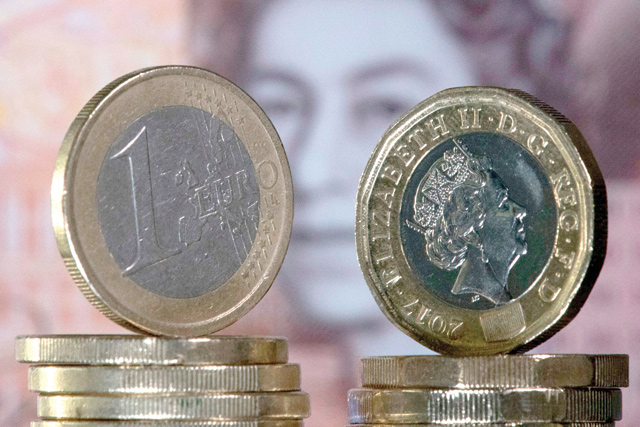LONDON — Britain's opposition parties are hitting out at currency speculators betting against the pound while also bankrolling the leadership campaign of pro-Brexit Prime Minister Boris Johnson.
However, allegations of conflicts of interest are difficult to prove in the highly globalised and largely unregulated foreign exchange markets.
John McDonnell, the main opposition Labour Party's finance spokesman, warned that Johnson's supporters could be pressing the prime minister for a no-deal Brexit in order to benefit their currency market positions.
He told MPs on Monday that some traders were "gambling on the country's failure" and accused Johnson's ruling Conservatives of receiving hundreds of thousands of pounds "from individuals who back a no-deal Brexit, many involved in hedge funds".
Backed by the Liberal Democrats, McDonnell has demanded an inquiry and wrote to Cabinet Secretary Mark Sedwill, Britain's top civil servant, to outline his concerns.
Former finance minister Philip Hammond, a staunch opponent of Britain leaving the European Union without a divorce agreement, has also expressed his concerns over potential currency trades related to no deal.
The government has dismissed the concerns as "myths" and refused to open an investigation or comment on individual Tory donors.
"We do not accept there is any prospect of a conflict of interest," Simon Clarke, a finance minister, told the house of commons in response to McDonnell.
Among those implicated in the allegations is Crispin Odey, a wealthy hedge fund manager who is a leading backer of a no-deal Brexit and Johnson.
He donated £10,000 to Johnson's Conservative leadership campaign and has given almost £900,000 to pro-Brexit campaigns in the past, according to British media reports.
Odey told The Guardian on Monday that claims his support was motivated by an opportunity to make millions from short-selling British companies and the pound was "absolute rubbish".
"We are trading currencies all the time, long and short," he said.
Short-selling
The pound has lost around 15 per cent of its value since the Brexit vote more than three years ago.
At the beginning of September, it fell back to levels not seen since 1985, aside from its dramatic post-referendum drop in 2016.
The accusations in Westminster centre on "short-selling" of the currency.
This sees traders borrow and sell assets in the hope of then buying them back at a lower price and pocketing the difference between the old price and the new one.
Foreign exchange markets have always been highly speculative: US billionaire George Soros made his fortune by betting against the pound in the early 1990s, and has recently funded efforts to bring about another referendum on Britain's EU membership.
Anti-EU populist Nigel Farage, a former commodities trader, was accused of using the 2016 referendum to fuel speculation on the pound — something he has denied.
Before the official announcement of the results, he sent the pound spiking by conceding the likely defeat of his pro-Brexit camp.
Hours later, the "Leave" side's victory sent the British currency crashing.
'A different time'
However, experts say the sheer weight of the foreign exchange market — where more than $5 trillion is traded daily — makes it hard for individuals to have a big impact.
"It's going to be super difficult to move the market," Yuval Millo, an accounting professor at Warwick Business School, told AFP.
Marcin Kacperczyk, at Imperial College London, agreed, noting it was "a different time" when Soros was able to speculate so successfully on the pound in the 1990s.
Millo said critics of currency speculators could struggle to prove any conflicts of interest.
"It is using my influence because I'm a donor to improve my market position," he said of their likely motives.
The myriad influences on modern foreign exchange mean it is also hard to pinpoint one event or action as the sole cause of currency fluctuations.
Meanwhile, Odey and other speculators are not the only ones betting against the pound in the event of a no-deal Brexit.
Craig Erlam, an analyst at Oanda, is among those predicting an additional 20 per cent drop in the currency's value in such a scenario.
Short positions are also being taken in other trading areas, such as shares in British companies, according to Millo.
